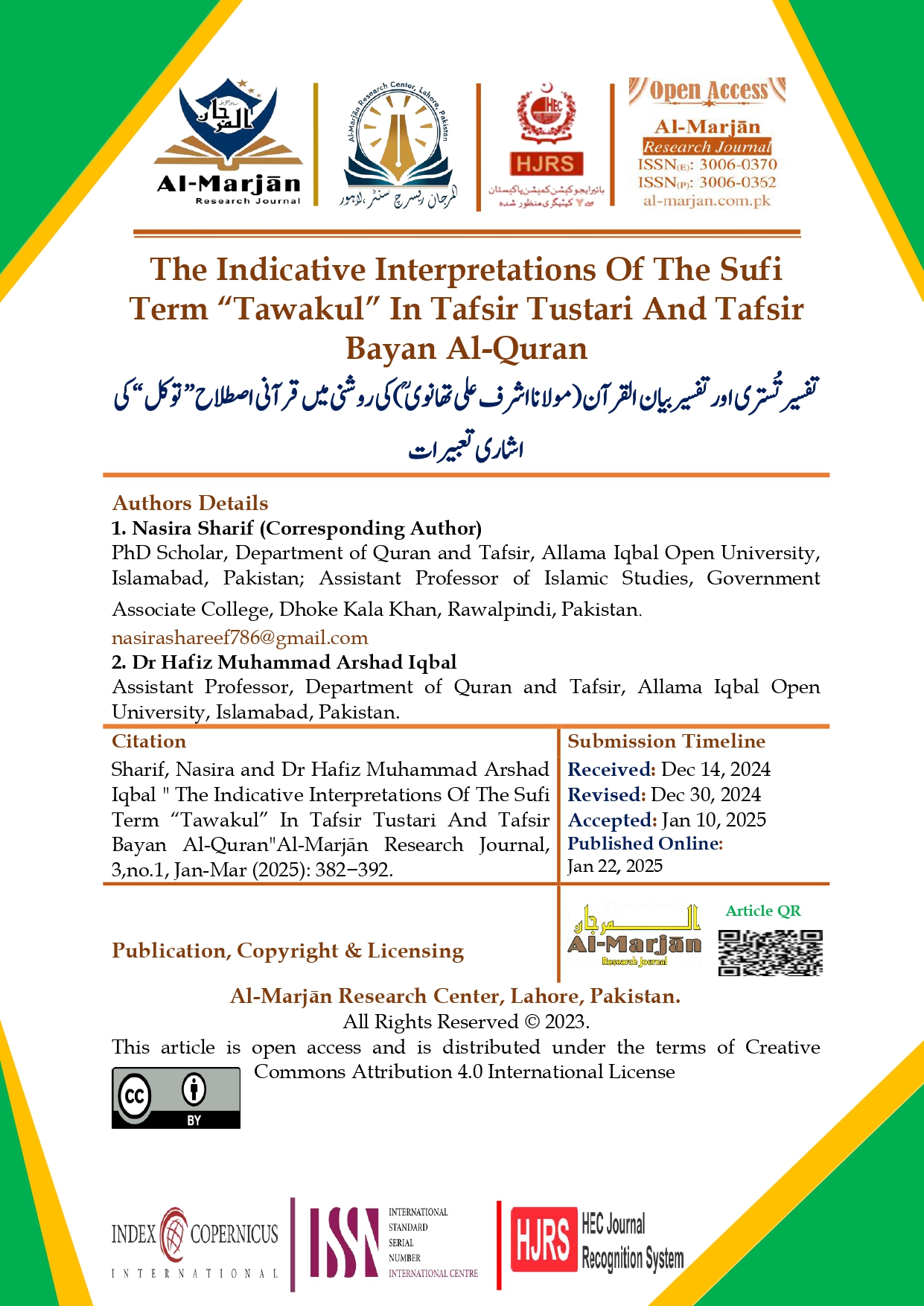The Indicative Interpretations Of The Sufi Term “Tawakul” In Tafsir Tustari And Tafsir Bayan Al-Quran
تفسیر تُستری اور تفسیر بیان القرآن (مولانا اشرف علی تھانوی ؒ ) کی روشنی میں قرآنی اصطلاح ” توکل “ کی اشاری تعبیرات
DOI:
https://doi.org/10.1234/j4pnv178Keywords:
Tawakul,Tafsir al Ishari, MasailusalookAbstract
Tafsir al-Ishari, a mystical interpretation of the Quran, finds its foundational roots in Tafsir Tustari, often regarded as the mother of all Sufi exegeses. On the other hand, Maulana Ashraf Ali Thanvi’s Bayan al-Quran addresses similar esoteric themes under the category of Masā’il al-Sulūk (spiritual matters). This study explores the similarities and differences between these two influential commentaries in their interpretations of the Sufi term Tawakul (trust in Allah). According to Imam Sahl al-Tustari, Tawakul signifies complete detachment from worldly means, considering them unnecessary for spiritual reliance. In contrast, Maulana Thanvi emphasizes a balanced approach, advocating for sincere effort and the utilization of available resources while maintaining absolute trust in Allah’s will. Despite their differences, both exegetes concur that all worldly causes remain ineffective without divine sanction. This research highlights how Tafsir al-Ishari presents Tawakul through symbolic and mystical expressions, shaping the Sufi understanding of reliance on Allah. By examining these perspectives, the study sheds light on the broader discourse of Sufi spirituality and its interpretative nuances in Quranic exegesis.
Downloads





































